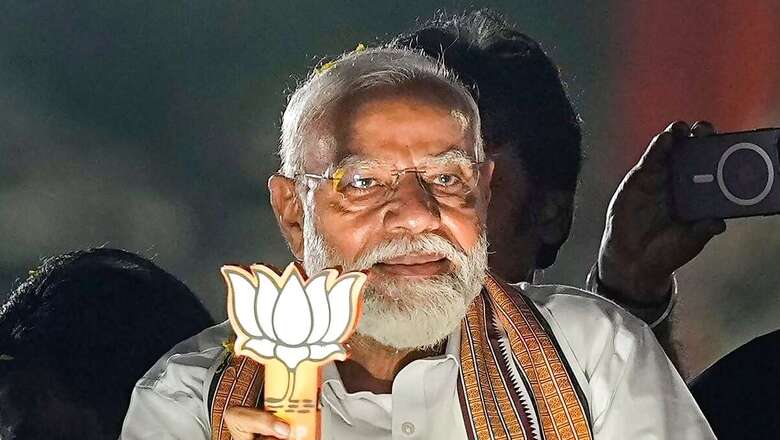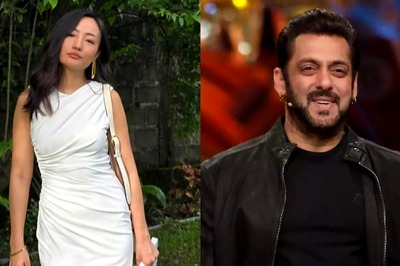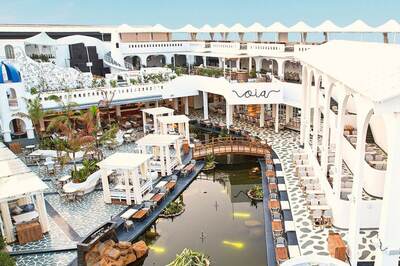
views
Prime Minister Narendra Modi on Wednesday said the process of development and good governance in Jammu and Kashmir after the abrogation of Article 370 is to be seen to be believed. He said the people of the union territory have a “new hope” and are “reaping the peace dividend”.
Do read my interview with @Newsweek, in which I have shared my thoughts on various issues, both domestic and international. https://t.co/l4lejBTFfI@NancyCooperNYC @TellDM— Narendra Modi (@narendramodi) April 10, 2024
Modi, who is the first Indian PM after Indira Gandhi to appear on the cover of Newsweek, in an interview to the weekly magazine was asked how he responded to the criticism he and his government faced for ending Jammu and Kashmir’s special status. To this, he suggested that instead of believing him and others, people should experience firsthand how the region has become a welcoming destination for global events like the G20 and Miss World, as well as sporting occasions like Formula 4 racing.
“I would encourage you to visit Jammu and Kashmir to witness firsthand the sweeping positive changes happening on [the] ground. Do not go by what I or others tell you. I went to Jammu and Kashmir just last month. For the first time, people have a new hope in their lives. The process of development, good governance and empowerment of the people is to be seen to be believed,” he told Newsweek.
He further said after the revocation of special status had enabled space for digital economy, startups, innovation and smart solutions instead of terror incidents, protests and stone pelting. Stressing on J&K’s famed tourism, he said more than 21 million visitors have visited since 2023.
“Over 21 million tourists visited Jammu and Kashmir in 2023. There has been a significant decline in terror incidents. Organised bandh/hartals [protests], stone pelting, which once disrupted normal life, are now a thing of the past,” he was quoted as saying in the report.
Prime Minister Modi said the changes in the UT had brought about a “new dawn” for Kashmiri women and the youth. “A new dawn has also emerged for Kashmiri women, who now enjoy the same rights as their male counterparts when it comes to inheriting property or transferring property to their children, regardless of their marital status or residency,” he added.
‘India, China ties important not just for us but entire region and world’
Amid the ongoing controversy over China renaming some areas of Arunachal Pradesh, the PM was asked about the Indo-China border dispute. He said the “abnormality” in bilateral ties needed to be urgently addressed as the relationship is important and significant for India.
“It is my belief that we need to urgently address the prolonged situation on our borders so that the abnormality in our bilateral interactions can be put behind us. Stable and peaceful relations between India and China are important for not just our two countries but the entire region and world. I hope and believe that through positive and constructive bilateral engagement at the diplomatic and military levels, we will be able to restore and sustain peace and tranquility in our borders,” he was quoted as saying.
About the other neighbour with whom India has always had tense, mostly hostile, relations, PM Modi said he has congratulated the prime minister of Pakistan, Shehbaz Sharif, on taking charge but cannot comment on their internal matters (in relation to the imprisonment of Imran Khan).
“India has always advocated for advancing peace, security and prosperity in our region in an atmosphere free from terror and violence…” he said.
‘Shri Ram imprinted on national consciousness’
Recalling his experiences during the pran pratishtha of the Ram Lalla idol at the newly inaugurated Ram Janmabhoomi Mandir in Ayodhya, the PM said the return of the Hindu deity to his birthplace marked a “historic moment of unity for the nation”. He said his 11-day pilgrimage leading up to the event will be etched in his mind as he went to place that carry the “footprints of Shri Ram” and made him realise how revered Ram was in different corners of India.
“The name of Shri Ram is imprinted on our national consciousness. His life has set the contours of thoughts and values in our civilisation. His name echoes across the length and breadth of our sacred land. Therefore, during the 11-day special ritual I observed, I made a pilgrimage to the places that carry the footprints of Shri Ram. My journey that took me to various corners of the country showed the revered place Shri Ram holds within each of us,” he told the magazine.
He described the inauguration of the temple in Ayodhya as a “culmination of centuries of perseverance and sacrifice”. “When I was asked to be part of the ceremony, I knew I would be representing the 1.4 billion people of the country, who have waited patiently for centuries to witness Ram Lalla’s return… I carried with me the aspirations of countless devotees, eagerly anticipating this day. The ceremony itself brought the nation together into a celebration, akin to a second Diwali. Every home was illuminated by the light of ‘Ram Jyoti’. I see it as a divine blessing that I could experience the consecration ceremony as a representative of 1.4 billion Indians,” he added.
‘Popular support for government increasing’
Ahead of the upcoming Lok Sabha elections, the Modi-led BJP government at the Centre is poised for a historic third term. About his chances of becoming the prime minister for the third time, Modi said while discontentment towards governments around the world has increased in the last few years, India stands out as the exception.
“By the end of the second term, even the most popular governments start losing support. Discontent toward governments has also increased in the last few years in the world. India stands out as an exception, where popular support for our government is increasing,” he said.
On claims of diminishing media freedom, Modi called them “dubious” and said some in India and the West tend to live in “their own echo chamber”. “There are a few people in India and in the West who have lost [connection with] the people of India — their thought processes, feelings and aspirations. These people also tend to live in their own echo chamber of alternate realities. They conflate their own dissonance with the people with dubious claims of diminishing media freedom,” he added.



















Comments
0 comment